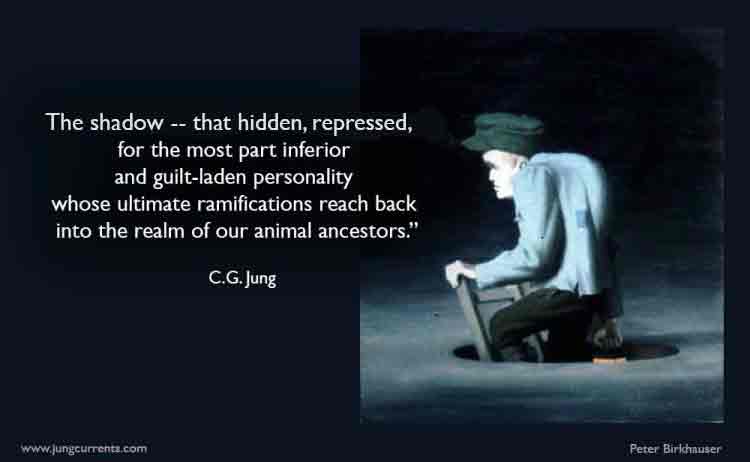Jung defines his concept of the shadow

Carl Jung: On the Shadow
I have tried, in this book, to elucidate and amplify the various aspects of the archetype which it is most important for modern man to understand— namely, the archetype of the self.
By way of introduction, I described those concepts and archetypes which manifest themselves in the course of any psychological treatment that penetrates at all deeply.
The first of these is the shadow, that hidden, repressed, for the most part inferior and guilt-laden personality whose ultimate ramifications reach back into the realm of our animal ancestors and so comprise the whole historical aspect of the unconscious.
Through analysis of the shadow and of the processes contained in it we uncover the anima/animus syzygy.
Looked at superficially, the shadow is cast by the conscious mind and is as much a privation of light as the physical shadow that follows the body.
For this superficial view, therefore, the psychological shadow with its moral inferiority might also be regarded as a privation of good.
On closer inspection, however, it proves to be a darkness that hides influential and autonomous factors which can be distinguished in their own right, namely anima and animus.
When we observe them in full operation— as the devastating, blindly obstinate demon of opinionatedness in a woman, and the glamorous, possessive, moody, and sentimental seductress in a man— we begin to doubt whether the unconscious can be merely the insubstantial comet’s tail of consciousness and nothing but a privation of light and good.
Collected Works 9
